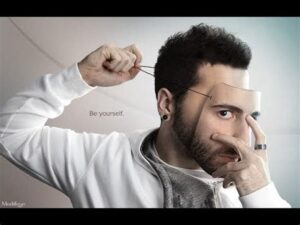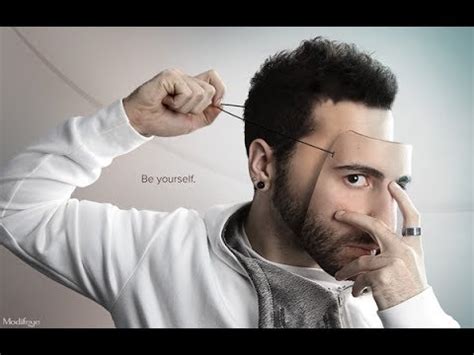Wearing a mask is highly recommended these days due to this unprecedented pandemic we are experiencing. I thought I’d take advantage of the whole mask thing to talk about the problem with putting on a non-physical mask. The other day I saw a woman whose mask covered her face right to the point where her bangs came down to her eyebrows and all I could see of her actual face was a couple of eyes peeking over the top of the mask. As I spoke with her I received very little non-verbal communication. Her eyes did have some expression so that was helpful. But there was no emotion relayed through a smile, a downturned mouth, a crinkled nose or other facial expression.
The other day I saw a woman whose mask covered her face right to the point where her bangs came down to her eyebrows and all I could see of her actual face was a couple of eyes peeking over the top of the mask. As I spoke with her I received very little non-verbal communication. Her eyes did have some expression so that was helpful. But there was no emotion relayed through a smile, a downturned mouth, a crinkled nose or other facial expression.
This is the problem with these face masks — and masking in general. Masking prevents us from being known. Why do we end up masking?
- To hide what we are actually feeling. Sometimes expressing or showing emotion can lead to disapproval, upset or even abuse from a parent or partner. The result of such a response can lead a person, especially a child, to determine that it isn’t okay to feel what they are feeling — or at least not to show it. Ta da — a mask!
- To try and be what someone else wants us to be. This is also what we call an external locus of control — where we look to things outside of us — family, teachers/professors/mentors, partners, social media influences, popularity — to define and dictate our sense of worth. “Just tell me what you want me
 to be and I’ll be that kind of person…” The problem with this being it leaves us inauthentic and anxious — uncertain as to if and when the expectations will change.
to be and I’ll be that kind of person…” The problem with this being it leaves us inauthentic and anxious — uncertain as to if and when the expectations will change. - Feeling inadequate or insecure. This leads us to mask because we mistakenly succumb to the lie that we aren’t okay the way we are. We pursue the approval of others. “Maybe if I looked prettier, thinner, smarter, more athletic, more ____ (insert almost any adjective), then I would be acceptable!” Problem being — we will never reach the point of being ‘enough’ until we determine that we are.
So how can we unmask and be known?
Firstly, we have to be a bit more vulnerable. Unmasking makes us exposed. It is threatening but also opens the possibility for our needs to get met and for people to know us. Emotions are on a continuum — so we can’t flat line or mask only the painful/unpleasant emotions.  They all go flat! If we learn to recognize and regulate our emotions they will function the way they are supposed to, not one extreme or the other. We are not flailing emotions. Nor are we meant to be emotionally disconnected.
They all go flat! If we learn to recognize and regulate our emotions they will function the way they are supposed to, not one extreme or the other. We are not flailing emotions. Nor are we meant to be emotionally disconnected.
Secondly, we have to choose to take the mask off. Being authentic and not hiding our true selves is a choice we make as we determine what kind of person we want to be. Do we want to be fake? Do we want to stay hidden behind a mask that may give us a sense of security but ultimately cause more loneliness and pain? Wearing a mask (remember, I’m not talking about COVID masks) keeps us from being seen and potentially known by others. It doesn’t give them enough information. It may give us an illusion of control but ultimately keep us from intimacy in relationships.
Thirdly, we have to be willing. Willingness is key to relational and personal wholeness. Our wills are incredible sources of strength for both good and evil. Willfulness/rebellion can make a statement but is it the one you want to make? Does it help you or hinder you? Willfulness often leads to sabotage. No one can make you take your mask off and be more vulnerable. I mean really — look at Darth Vadar — the ultimate Masker! Yet his willful rebellion brought nothing but pain, loss and destruction. He used the force but not for good.
No one can make you take your mask off and be more vulnerable. I mean really — look at Darth Vadar — the ultimate Masker! Yet his willful rebellion brought nothing but pain, loss and destruction. He used the force but not for good.
Taking your mask off is risky. Especially if you’ve worn it for a long time, however the benefits may surprise you. It’s actually the only way you can be known — which is essentially the core of intimacy. We are built for intimate connection with one another — to know and be known.
P.S. When you are wearing a COVID mask, be mindful of your non-verbals being impacted. Try to be more communicative with your eyes, eyebrows, body posture, tone/intonation, hand movements and other non-verbals. Having your face covered from the eyes down does put you at a disadvantage for communicating effectively what you are feeling.





